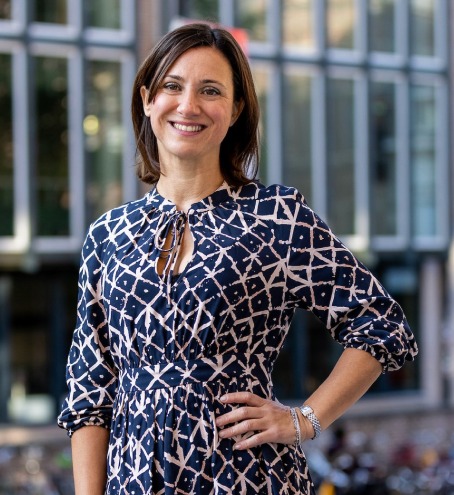NWO Take-off grant for innovative knee prosthesis by Raffaella Carloni

Raffaella Carloni , Associate Professor of Robotics at the University of Groningen ( Bernoulli Institute ), has received a Take-off grant from the Dutch Research Council (NWO). It concerns a Take-off phase 1 feasibility grant of EUR 40,000. This enables Carloni to conduct a feasibility study for her research on an innovative bionic knee prosthesis for people with lower-limb amputation.
The Take-off financing instrument is aimed at stimulating and supporting scientific activity and entrepreneurship. Academic and innovative start-ups can use the feasibility studies to explore whether their innovative ideas have commercial or social applicability. If this proves feasible, they have the opportunity to start a business.
Improving quality of life
The premise of Carloni’s knee prosthesis is that users can regain their movement capabilities. Many people with a lower-limb amputation have challenges related to mobility, adaptability to different terrains, and living an active life. This greatly affects their independence and quality of life. Prof. Carloni has developed a knee prosthesis that mimics the fundamental functionalities of a healthy human knee. This feasibility study will further investigate the technical possibilities of the knee prosthesis and explore the commercial opportunity of this discovery. For this purpose, a business model will be established, analysing the market and economic viability.
A total of 32 feasibility studies will be launched – from exact science and technology or life sciences to the humanities and social/behavioural sciences. Visit the NWO website for an overview.
More news
-
02 December 2025
Student Menna Zahran wins Unilever Research Prize
-
27 November 2025
Aeroplane spotting using a radio telescope
-
26 November 2025
Why are shiny colours rare yet widespread in nature?
